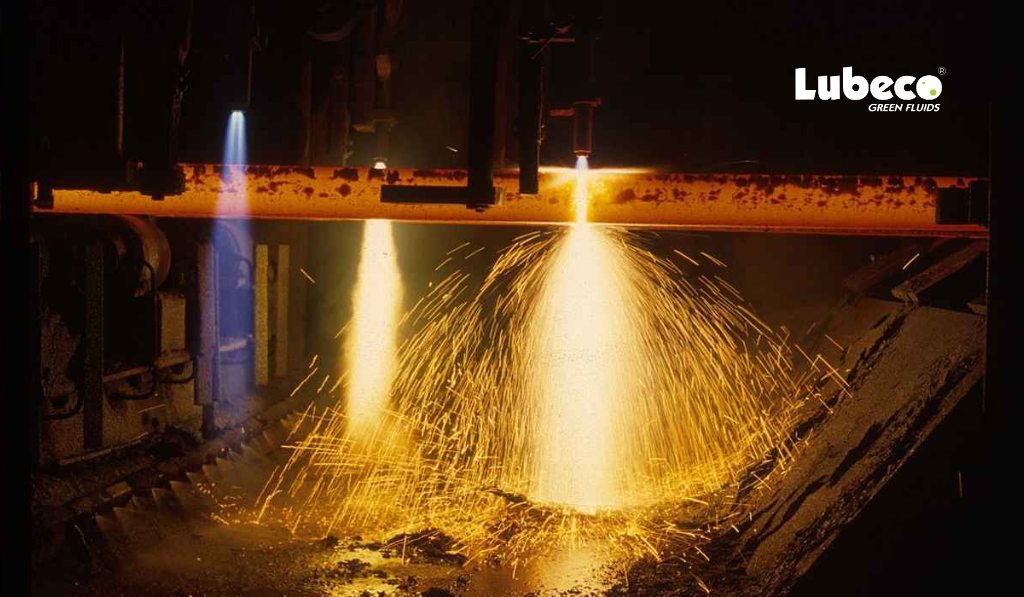Introduction:
Quenching oils serve as indispensable tools in various industrial sectors, facilitating the rapid cooling and heat treatment of metal components. From automotive to aerospace, machinery to metalworking, the applications of quenching oils are vast and diverse.
In this blog, we’ll explore the multifaceted uses of quenching oils across different industries, highlighting their significance in enhancing product quality, durability, and performance.
1) Automotive Industry:
Quenching oils play a pivotal role in heat treatment processes for critical automotive components such as engine parts, transmission gears, and chassis elements.
By enabling precise control over cooling rates, quenching oils help achieve optimal hardness and strength, enhancing wear resistance and fatigue life in automotive applications.
2) Aerospace and Defense:
In the aerospace and defense sectors, quenching oils are essential for heat treating aircraft components, turbine blades, and structural materials. These oils facilitate the attainment of desired metallurgical properties, ensuring the structural integrity and performance of aerospace components under extreme conditions.
3) Machinery and Tooling:
Quenching oils find extensive use in the machinery and tooling industry for hardening and tempering various tool components, including cutting tools, molds, and dies.
Through controlled heat treatment processes, quenching oils enhance the hardness, wear resistance, and dimensional stability of tool steels, prolonging their service life and performance in machining operations.
4) Metalworking and Fabrication:
Metalworking and fabrication processes rely on quenching oils for annealing, normalizing, and tempering operations across ferrous and non-ferrous metals. These oils facilitate the transformation of metal microstructures, resulting in improved mechanical properties, surface finish, and dimensional accuracy in metal products.
5) Oil and Gas:
In the oil and gas industry, quenching oils are utilized for heat treating critical equipment components such as drill bits, valves, and pumps.
By enhancing the hardness and wear resistance of metal parts, quenching oils contribute to the reliability and longevity of equipment used in exploration, drilling, and production operations.
6) Heat Treatment Technologies:
Quenching oils are integral to various heat treatment technologies, including martempering, austempering, and quench-and-temper processes. These oils enable precise control over cooling rates, ensuring the desired metallurgical transformations and mechanical properties in heat-treated components.
7) Surface Hardening:
Surface hardening techniques such as induction hardening and flame hardening rely on quenching oils to achieve rapid cooling and subsequent hardening of metal surfaces. By forming hardened surface layers, quenching oils enhance wear resistance and extend the service life of components subjected to abrasive and erosive conditions.
8) Precision Engineering:
In precision engineering applications, quenching oils play a crucial role in achieving tight tolerances and dimensional accuracy in machined components. These oils facilitate controlled heat treatment processes, minimizing distortion and ensuring the integrity of intricate geometries in precision-engineered parts.
9) Environmental Considerations:
With growing concerns about environmental impact, the development of eco-friendly quenching oils has gained traction in recent years. Manufacturers are increasingly adopting biodegradable and low-toxicity formulations to mitigate environmental risks associated with conventional quenching oils.
10) Technological Advancements:
Ongoing research and development efforts in the field of quenching oils focus on the development of advanced formulations and technologies. These include synthetic quenching oils, nano-enhanced additives, and predictive modeling techniques, aimed at optimizing heat treatment processes and enhancing the performance of quenched components.
Conclusion:
As industries continue to evolve and demand higher-performance materials, the versatility and importance of quenching oils in manufacturing processes cannot be overstated. From automotive to aerospace, machinery to metalworking, quenching oils play a vital role in achieving superior product quality, durability, and reliability across diverse industrial sectors.
With ongoing technological advancements and environmental considerations, the future of quenching oils holds promise for further innovation and sustainable development in manufacturing.










